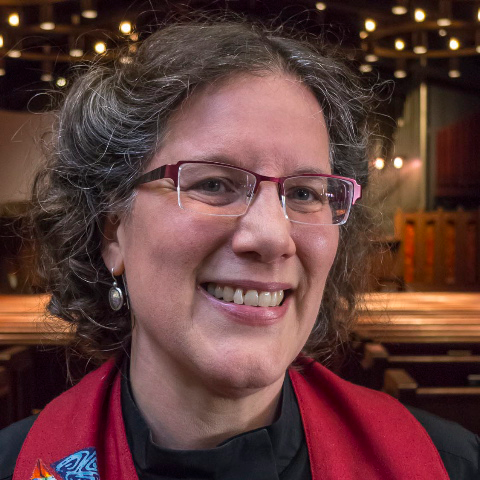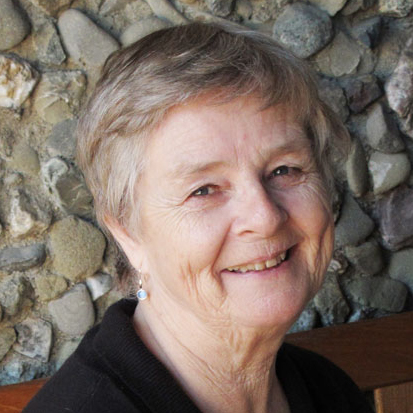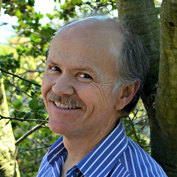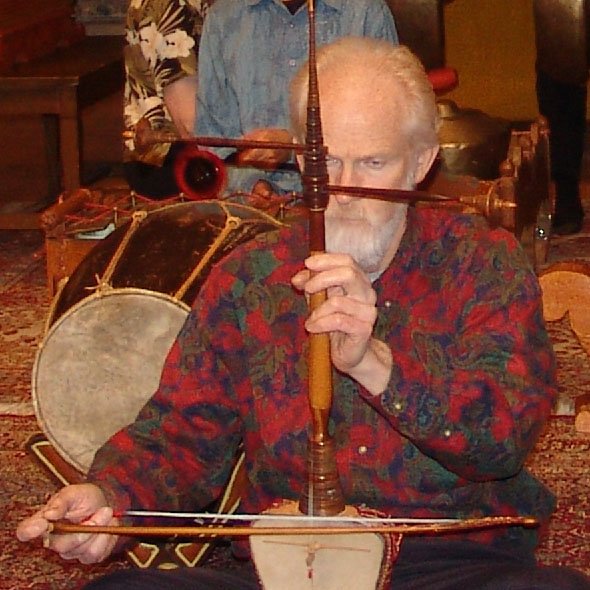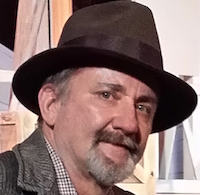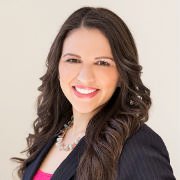[Cordell opens with singing from the lectern, “We Shall Overcome”.]
Sermon—Part 1
Good morning. My name is Lonnie Moseley and this is my husband and partner, Cordell Sloan. My sermon this morning is on Race, Diversity and Church life.
It’s scary for me to talk honestly about race in a mixed race community but I’ve learned from this very community that it takes courage to be a UU and here at UUCB, I’ve met many models of courage. And so I share my truth with you today.
Almost every middle class, black woman born in the 1950’s, like myself, was taught that friendships and relationships with white people would always be tenuous—no matter how sincere those friendships seemed initially.
That when the social pressures became too intense from a white person’s larger community, the friendship and connection with a black person would be severed to preserve the white person’s own standing in their community.
This teaching was handed down in our mother’s milk. And it was not considered racism. It was realism. This understanding of the “ways of white folks” was not taught with bitterness or anger. It was just fact.
We brown girls of the 50’s all knew the stories of generations of black women who suckled and cared for white babies—and loved them EVEN with the understanding that one day those same babies would grow up to reinforce the laws of segregation; and most likely call the mammies that they once loved, the “N” word.
These warnings passed down to me contained no pathos, no anger and no despair. They were just understandings passed to my mother from her mother and from the mothers before that. Negro Mothers guiding their daughters through the realities of race relations in America.
And so it was astonishing to me that even after Martin was killed and racial hatred was now visible on the nightly news, that my regal and very pragmatic mother would become deeply attached to my younger brother’s white, Irish girlfriend, Brenda.
And when the two teenagers broke up that my mom would go so far as to ask Brenda’s mother if she could foster and mentor Bren. So as a college student, I suddenly I had a white, foster younger sister—who I also grew to love deeply.
Brenda moved from Philadelphia to the Bay area in the early 70’s. And each year I would visit her–Our sisterhood becoming deeper and deeper. In 1996 at 40 years old, Brenda married a wonderful Berkeley man and a year later gave birth to the most beautiful red haired and blue eyed little girl. My mother and I flew to the Bay area for the baby’s birth and then again for her first birthday. I never left.
One evening while babysitting and holding “my god baby” I looked into her blue eyes and my heart began to swell with a love I had never experienced—never having had children of my own.
But on the edge of that love, I suddenly froze in dread. Those warnings I hadn’t thought about in more than 35 years were whispering in my ears.
I could see standing around me 4 centuries of black mammies, and nannies and caregivers who had loved white babies.
I held that child, wanting to love her completely but paralyzed by the terrible possibility…that one day she would grow up and think of me as a “Nigger.”
Those generations of black women waited to see how I would choose.
And I chose Love.
[Cordell begins to hum “Amazing Grace” while Lonnie rocks the baby. He fades on “how sweet the sound”]
7 years later, it was because of that little baby, that Brenda found UUCB for her daughter. And she asked me to come with her to check out this church. I never left.
It is here at UUCB that I have found more love in more blue eyes and every other eye color than I thought was possible.
Love is the only true thing.
[Cordell continues “Amazing Grace” and sings the actual words “I once was lost…but now I’m found. Was blind but now I see.”]
Sermon—Part 2
It takes courage to Love and it takes courage to be UU.
Unitarian Universalists have stood and continue to stand with black folks in civil rights; with Spanish-speaking folks in immigration and farm workers’ rights; and we stand on the side of Love for Marriage Equality.
After I joined UUCB, my new friend and community organizer, Bob Adams, asked me to help him lead a group here to talk about race. And I told him NO. But after much convincing, I said I would co-lead such a group if we talked about our common Humanity and not just my race. He agreed.
And so the Conversations on Humanity started and convened once a month.
We were multi-racial: black, white, Chinese, mixed race. We were multi-gender, male, female, transgender. We were gay and straight. Catholic, Atheist, Humanist, Protestant and Jew. We were US!
To be part of the Conversation, you had to tell the story of the first time you encountered racism or genderism or anti-gay actions. And we listened to each other’s stories and lost our breath at the pain of some of those encounters.
And when people finished their stories, we were changed. We were different.
One story that changed me was from our choir member, Lucy Marie, who had the courage to find her true gender identity. And the courage to agree to let me tell her story today.
In most of the Conversation monthly meetings, Lucy Marie just listened. But one evening she began to talk. Her voice was so quiet and we strained to hear her. She told the story of being at our church one Sunday morning and having to use the facilities–immediately.
As she walked up to the bathroom doors, she stood paralyzed outside–not knowing in which door she had permission to go into–looking around at her friends in the Atrium hoping someone would see her distress and say something; do something. And then in the meeting she just put her head down and wept.
My heart broke open that night of the Conversation. And I was changed. I was different. This was my sister. It took courage to tell us of her pain. It takes courage to be a Unitarian Universalist.
Sermon—Part 3
A year or so after seeing the many benefits of the Conversation on Humanity, my dear ministers, Bill and Barbara, invited the congregation to a movie series called “Race, the Power of An Illusion.”
Part 3 of the series was a historical look at the turn of the 20th century where one applied to be white in America. I never knew this. Different ethnic groups were not automatically given the “right to be white” even if their skin was white. Japanese and Hindu Indians could apply for white status.
The movie went onto show that after World War II when the soldiers came home and the GI Bill benefits were the gifts of service, that white soldiers were helped financially to buy housing and black soldiers and their families were systematically denied mortgages.
The one path to wealth in this nation, home ownership, was systematically denied to black people until Johnson signed the Fair Housing Act in 1968; but by then the 20 years of damage had been done. The Levittown’s and Allentown’s and track housing all over America was built for white families and their homes became their greatest assets. The housing rules had been written for skin color only—not heritage. It didn’t matter any longer if you were Polish or Italian or Greek; as long as you were not black.
When the movie was over, our dear church member, Monica Riley, who died two weeks ago– we were sitting together–turned to me with tears running down her face and said “I’m so, so sorry. I never knew that it was my parents who were receiving welfare and that your parents were being denied the opportunity to have a house. I didn’t know.” Monica’s pain was so real as she looked at me. I had never had anyone of another race say something like that to me.
And then she said, “You must HATE white people.” I was shocked and just stared at her.
Then I said, “Monica, I judge you not by the color of your skin but by the content of your character.”
OH COME ON!!, You know I didn’t have the presence of mind to quote Martin Luther King at that moment. I am not that together. I just hugged Monica and thanked her; for her words healed some deep part of me.
Some weeks ago, before Monica passed, she came to church and I was welcoming on the door and I stopped and told her I was giving the sermon today and I asked if I could tell the story of that time we talked after the movie. She enthusiastically told me yes. I’m so glad we had that last conversation.
Sermon—Closing
So understand it takes courage to be UU. Courage to create and sustain a church that covenants to assume good intentions. That covenants to honor the dignity and worth of ALL human beings. And we do this without some threatening God punishing us if we don’t.
I feel so blessed to have found this community.
But as a church, there is a place we must still go–a destination that is beyond Covenant. And it will take tremendous guts and commitment to not only travel to this place but to stay in it.
It is the place of true realization that we are ONE. That I am your Beloved as truly as you are mine. It is not an easy place to get to and it will take all the courage we have to stay committed to this realization–that we are all ONE.
But tell me, is there really anything else worth realizing?
What say you, Deacon Sloan?
Cordell: I say “Let the church say Amen!”







